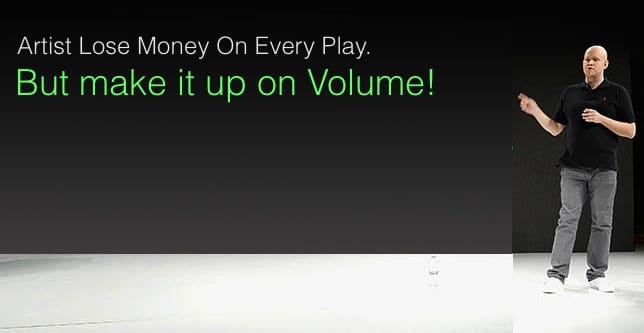___________________________________
Guest Post by Chris Castle on Music Tech SolutionsBy its own calculation, Spotify dominates the global streaming music market. According to a 2014 speech by Will Page, Spotify’s director of economics, as reported by Billboard:….Page noted Spotify has launched in 32 of the 37 countries where streaming is the primary digital source of revenue. Page also pointed out that Spotify is half of the $1.5 billion global subscription streaming market. In the U.S. market, Spotify made up approximately 90 percent of last year’s growth in subscription revenue, according to Page.While competition from Apple is certainly heating up, Spotify still is the dominant company in the space. According to the Wall Street Journal, Spotify’s revenues nearly doubled to $2 billion last year and is expected to do well again this year.Like Pandora and every other IPO-focused music service except for perhaps Tidal, Spotify blames its inability to make a profit on royalty payments rather than on its self-inflicted battle with Apple and spending levels based on a growth strategy.Spotify also took on a billion dollar convertible loan at what will turn out to be credit card interest rates to fund that grown strategy. Not to fund royalties, but to fund growth and competition with Apple.Spotify’s main arguments about why no IPO is summed up in a Wall Street Journal article that misses a few key points, but the lead paragraph is revealing:As Spotify AB gears up for a potential initial public offering next year, the music-streaming service is missing one key component in its pitch to investors: rights to play the music in years to come, according to people familiar with the matter.First–as predicted, no Spotify IPO this year or for the foreseeable future. And also as predicted, the blame for no IPO is not due to mismanagement by Spotify’s executive team, it’s due to The Evil Record Companies. Due to solid reporting by Hanna Karp at WSJ, Spotify’s “leak when you’re weak” strategy didn’t really give them what they wanted.
Related articles








